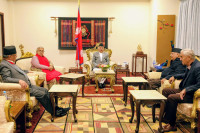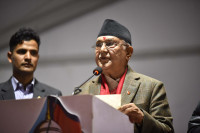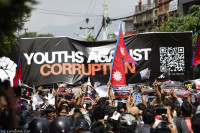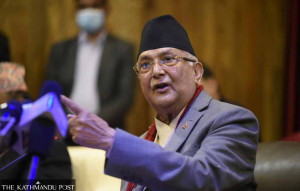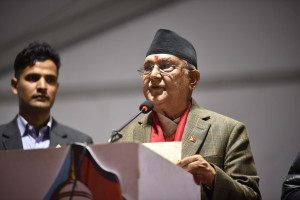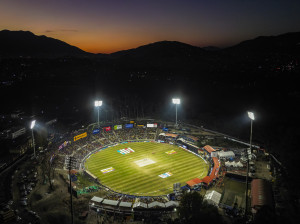Editorial
One good move
Prime minister made the right decision in not leaving for UN General Assembly
Prime Minister Sushil Koirala’s decision to cancel his visit to New York for the meeting of the UN General Assembly is welcome. It is an indication that he understands the gravity of the situation facing the country, and is keen to resolve it. He should now display a high degree of energy and initiative (which has unfortunately been missing) to repair relations with Madhesi and Tharu groups and bring them into the constitution-drafting process.
Madhesis and Tharus view Nepali Congress (NC) as a comparatively less conservative force than the CPN-UML while the UCPN (Maoist) is seen as a political loose cannon, whose chairman seems to be increasingly intolerant of minority communities lately. They view Oli as a Pahadi chauvinist who has not hesitated to belittle their aspirations. Koirala’s presence in the talks with the Madhesi parties, therefore, will have a strong symbolic value. Some major Madhesi/Tharu stalwarts such as Mahanta Thakur and Bijaya Gachhadar are former NC leaders, who enjoy good personal chemistry with the Nepali Congress president and prime minister.
There is a school of thought that maintains that the next order of business should be the replacement of the government. People who hold this opinion are generally from the UML and the UCPN (Maoist). They are keen to see Oli become the prime minister and the new government take office where they will have greater stakes. Oli’s supporters say that he is a strong leader and will be able to gain the confidence of both the agitating groups and India.
It is unfortunate that India has started to gain untimely attention than the more serious crisis within the country—the unrest across the Tarai. India might have felt it important to voice its concerns on the constitution. But its interest has already started to be resented as an intervention in Nepal’s affairs. New Delhi has not handled its diplomacy well. Its repeated public pronouncements expressing strong reservations against the new constitution are beginning to raise eyebrows. That India is the only important ally to express its reservation (repeatedly) against the constitution (all others have cautiously welcomed the constitution despite their reservations); that India’s open and strident support of the Madhesi disenchantment will only make the Madhes/Tharu movement lose its moral high ground in the eyes of the rest of the population; that in taking such a position so openly, Delhi will end up stoking communal disharmony despite its good intentions. Rather than taking a public stance, it would be better if India engaged in quiet diplomacy and sought to build a compromise between the government and agitating groups.
For their part, the worst thing that the leaders of the three major parties could do now is to engage in anti-India rhetoric. Rather, they should recognise that the problem started with their insistence on pushing through a majoritarian constitution that failed to address the aspirations of many minority groups. Madhesi and Tharu groups, meanwhile, should focus on formulating a negotiation strategy with the government to push for the demands of their communities.




 9.12°C Kathmandu
9.12°C Kathmandu